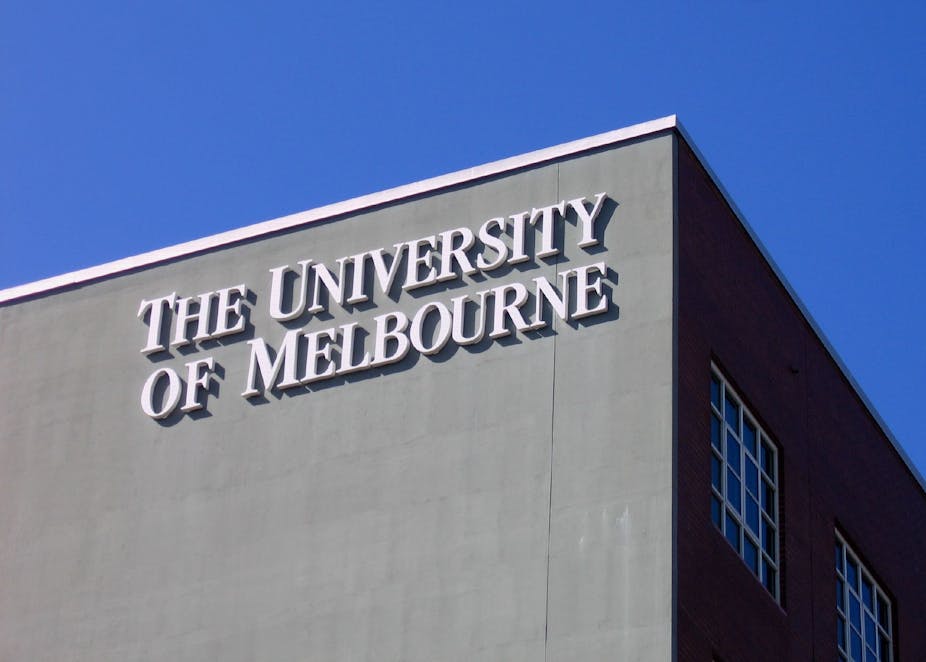Research funding has never been more important to Australian universities say experts, after Australia gained ground in the annual Times Higher Education World University Rankings.
The University of Melbourne remains Australia’s number one institution in the rankings, and leapt from 37th to 28th, widening its lead on second-placed Australian National University, which moved from 38th to 37th.
Australia gained an additional top 200 university, with the University of Adelaide entering at 176th.
Good people, leadership and the funding to support a strong research capability have been critical to University of Melbourne improving in recent years said Provost Margaret Sheil.
“You attract good people because you have the right setting for them to do good work and government funding into research is critical to that,” Professor Sheil said.
She added that the right funding environment was essential to attracting international students.
“There are three reasons why Australia’s higher education sector has done well over the last five years. One is we have recognised and benefited from a very successful international education activity. They’ve recognised that’s linked to research capability, and we’ve had the government settings to support that.”
Australia’s well-funded egalitarian system has helped it do well said Phil Baty, editor of Times Higher Education rankings.
“It’s clear Australia’s focus on research is helping Australian universities become more competitive around the world.”
Mr Baty also said Australia’s national research policy and relatively safe funding in recent years has paid off.
“The overwhelming message is world class universities cost a lot of money but they bring back far much more money in economic growth and highly skilled workforces. The governments that recognise that seem to be reaping the rewards.”
The rankings come as the Federal Government refuses to rule out cuts to health and medical research grants.
Professor Sheil said to sustain improvements ongoing funding was required, adding the sector was concerned about possible funding freezes.
Australia’s strong performance contrasted with the US and UK, with many of their institutions falling down in the rankings, with universities in China, Singapore, and South Korea gaining ground.
“People have talked about the West-East shift for many years but we’re starting to see empirical evidence that this is the case,” Mr Baty said.
“All indications are this is a continuing trend.”
However the US still dominates the rankings, with 76 institutions in the top 200, and the California Institute of Technology holding on to the number one spot.
“Irrespective of the methodology used, all three major world university rankings now point to a measurable rise in quality of top institutions in China, Singapore, Taiwan and South Korea and a gradual relative decline in the USA, Japan and Europe,” said Tony Sheil, deputy director of research policy at Griffith University. “The policy messages for Australia are clear. We are in a position to benefit from our proximity to Asia however it would be perilous to ignore the traditional university strongholds of the USA, UK and Western Europe.”
The shift in worldwide economic power is expanding to higher education research said Simon Marginson, professor of higher education at the University of Melbourne. Professor Marginson is on the board of the Times Higher Education rankings.
He said the fact Australian universities are doing better in the rankings is a good sign for Australia.
“It helps build reputation, but it also shows that against the same indicators Australia has done better than it did last year. That means something is improving, at least in relative terms.”
Professor Marginson added that the funding injected into the sector three or four years ago was now being seen in the rankings.
“There was a surge of income coming from both international students and the government, and now three or four years later we’re seeing that coming through in the rankings.”
The importance of rankings to the decision of international students to study in Australia was bolstered this week by an interview-based study of more than 450 international students showing ranking and reputation were important factors in choosing where to study.
However the IDP Education study found nearly three quarters of students intending to study overseas chose the destination country before the institution.
But Professor Margaret Sheil said the sector couldn’t afford to rely on Australia’s appeal as a country.
“We can’t just rest on our laurels and say Australia’s a great place people will still come even if the research environment is not as good as it was. That won’t happen.”
She added that this was even more critical for institutions such as the University of Wollongong, where she previously worked as deputy vice-chancellor of research.
“It’s not as noticeable when you’re in a great city with a great university around you, but if you’re in a small city as I was building up capacity, you know immediately the impact of an increase or decrease in the rankings.”
Mr Baty said where a university was headquartered had the potential to become less important with the growth of Massive Open Online Courses (MOOCs), and the emergence of “global super brands”.
“The top 200 only looks at 1% of higher education and most of them are global brands. So MOOCs bring that brand to a global audience.
"What it might do is hasten this move towards crating a tier of truly global institutions where headquarters become less important.”


